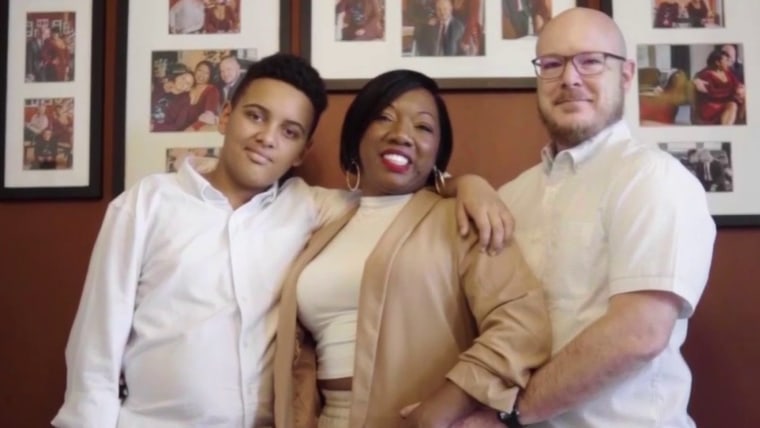Ligia Cushman, who grew up in New York City’s predominantly Dominican neighborhood of Washington Heights where she remembers being told “you’re not Black, you’re Dominican,” used to identify herself as Hispanic until she moved to the Deep South.
“That is where I had to come to terms with the fact that the world, the larger spectrum of the world, doesn’t necessarily see me as Hispanic,” Cushman, 46, said.
While living in states such as Tennessee, Kentucky and North Carolina, she faced instances in which her Latino identity was questioned. She specifically recalled one instance in which a co-worker told her their team needed to hire a Hispanic woman, even though Cushman had been working for that team for five years.
“I thought it was a joke, and she literally wasn’t joking,” she said. Following those kinds of experiences, she learned about the term Afro Latina, one that embraced both her Blackness and her Dominican roots.
“Identifying in that way, is what gave me some closure. And it also helped me learn to love myself,” she said.
As Hispanic Heritage Month kicks off, Latinos grapple with the decadeslong debate on whether or not the pan-ethnic terms that exist to identify their communities truly represent their lived experiences.
The term Hispanic first emerged in the 1960s when Puerto Rican civil rights groups and others such as the National Council of La Raza, now called UnidosUS, advocated for a way to count people who could trace their roots to Spanish-speaking countries in Latin America, the Caribbean or Spain in order to identify specific needs and fight for policies that could improve their livelihoods.
In 1968, President Lyndon Johnson signed a bill to celebrate Hispanic Heritage Week and recognize the contributions, diverse cultures and extensive histories of Hispanic and Latino communities in the U.S. starting Sept. 15.
But the federal government officially adopted the term Hispanic as a descriptor for this population in the 1970s under President Richard Nixon. It became an Office of Management and Budget directive in 1977, with the purpose of including the term in the 1980 census count, according to Mark Hugo Lopez, director of race and ethnicity research at the Pew Research Center.
Hispanic Heritage Week was later extended to Hispanic Heritage Month during President Ronald Reagan’s term in 1988. Throughout the following decade, other terms such as Latino and Latinx emerged, with Latino being included alongside Hispanic in the 2000 census count.
Newer terms such as Afro Latino or Black Hispanic have also been adopted in academic spaces in recent years to highlight particular experiences of Black people who also belong to other ethnic groups.
Alternate terms for Hispanic have become crucial for Latinos such as Alfredo Corona, who wanted to shy away from the original term.
Corona, 26, said he does “not really like to use terms like Hispanic and Latino too much,” which implicitly anchor the ethnic identity to Latin America’s colonial period when mixing occurred among Indigenous people, white Europeans, Black slaves from Africa, and Asians. Instead, he prefers to identify as Chicano, a term popularized by people of Mexican descent born in the U.S. during the 1960s, since it adds value to his indigenous roots while also acknowledging his American upbringing.
He even pays tribute to his roots through Chicano rap music. His artistic name, Aztec Speech, is an ode to the rapper known as Speech of the Atlanta-based hip-hop group Arrested Development — as well as the Aztec tribes that once lived in central Mexico, where Mesoamerican culture flourished prior Latin America’s colonial period.
“We really would call ourselves Mexicas,” Corona, who lives in the Atlanta metropolitan area, said about coming up with his rapper name before learning that Aztec was the term European colonizers used to describe Mexica tribes. “But I guess it’s too late now to change it.”
Fatima Garza also identifies as Chicana. But as a Mexican American who lives in south Texas, the 21-year-old identifies as a “fronteriza,” or borderlander. It is specifically someone who lives in the U.S.-Mexico border area and navigates both languages and cultures.
“We didn’t cross the border, the border crossed us. So, there’s this very unique experience,” she said. “My family has experienced this state of not being from Mexico, but not being from the United States. That’s why I find it so important to call myself a fronteriza.”
Source: | This article originally belongs to Nbcnews.com










